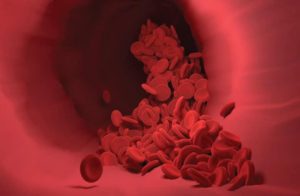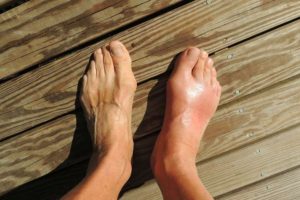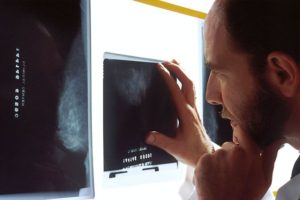 ~ Foreword ~
~ Foreword ~
What we publish below COULD be considered a mixed bag – BUT – it is the warnings which we are concerned about. We will NOT make any specific recommendations nor comments regarding what the articles says as to how to get the problems resolved – nor do we have anything negative to say about the recommendations by the authors. What we publish here is meant to be an education as relates to one of the most common and devastating forms of cancer that we face. Just remember – how you choose to deal with your health and well being is YOUR choice! ~ Ed.
 What is colon cancer?
What is colon cancer?
Colon cancer is the cause of one of the top 5 most common cancer-related deaths in the US in men and women. Fortunately, it is highly easy to treat in the early stages. So how can you avoid cancer of the colon from progressing beyond stage 0? There are some very obvious signs you can watch out for.
Colon cancer is also called rectal cancer or colorectal cancer. It begins in the colon or the rectum. Both of these make up the large intestine which is the last part of the digestive tract. It is alternatively referred to as the large bowel. What triggers cancer in this area?
The exact cause of the disease is not known; so it is difficult to tell anyone how to reduce the chances of cancer developing in the rectum or colon. Early detection is one of the smartest ways to fight cancer in any part of the body.
The causes of cancer of the colon may vary, but the majority of them start with a seemingly benign polyp going unchecked. A cancerous polyp is an abnormal growth rising from the lining of the colon and eventually protruding insidiously into the intestinal canal.
Here is a quick checklist of the top indicators of colon cancer, the basic tests you should ask your doctor to do, and treatment methods.
 Blood in the Stool
Blood in the Stool
The persistent presence of blood in the stool is one of the main symptoms of colon cancer. It may be black, purple, maroon or any other shade of deep red. Since colorectal cancer is an abnormal tissue growth in the large intestine, it can bleed easily and thus show up in the stool.
This is a cause for concern UNLESS you have already received a diagnosis for hemorrhoids (piles), colon inflammation, or bleeding ulcers of the stomach. In case there is no such medical history, you should see a doctor if you have been passing tarry or sticky stool consistently or notice blood when emptying your bowels.
You may be asked to do a fecal test to determine the cause of the abnormal bleeding.
 Unexplained Changes in Bathroom Habits
Unexplained Changes in Bathroom Habits
Have you been going to the bathroom more often or less frequently? Does the texture and consistency of your stools look different? It may be more loose, thin, or stringy than usual. You may find difficulty in passing stools.
These symptoms could indicate rectal or colon cancer unless you know you may have been exposed to contaminated food or water. Food poisoning also causes such changes in bowel movements.
 Diarrhea
Diarrhea
Infections of the bowel or intestines can cause loose, watery stools along with the need to visit the bathroom frequently. It can last for a few days and does not always require medication. People with inflammatory bowel disease or irritable bowel syndrome may also have this issue consistently.
However, if you don’t have any bowel disease and experience persistent diarrhea, it could be a sign of colon cancer. The etiology of cancer of the colon indicates that more than 1 in 5 people with colon cancer will experience diarrhea as a symptom.
 Constipation
Constipation
While diarrhea is a sign of something wrong with your colon, so is constipation. If you have pain or difficulty while passing stools, it could mean that there is some sort of obstruction in your large intestine or rectum which is causing this.
The MOST IMPORTANT CLUE is not one single case of constipation or runny stools, but a persistent change in their color, texture and consistency.
Additionally, you may feel the urgent need to go to the toilet and not be able to pass stools. Or you may keep experiencing incomplete bowel movements.
 Rectal Bleeding
Rectal Bleeding
Because of how cancer cells are formed in the last part of the digestive tract in the case of colon cancer, more than 50 percent of patients experience bleeding from the rectum. It may not necessarily be mixed in with the stool, though you might go through painful bowel movements and notice a bright red color on the toilet paper or in the toilet bowl.
But before you jump to any conclusions, it would be better to first eliminate the suspicion of hemorrhoids when you notice the above symptoms.
 Unexplained Weight Loss
Unexplained Weight Loss
Have you lost 10 pounds (4.5 kilograms) or more in the past six months without any changes in diet or exercise? Sudden weight loss is a strong indication of several types of cancers including colorectal cancer.
The weight loss is caused by blockages in the colon or your immune system burning too much energy to fight the disease or the cancerous tumor using up excessive amounts of the body’s energy supply or all of the above.
Don’t wait for further symptoms to show up; book an appointment with your physician.
 Anemia
Anemia
People who have anemia experience shortness of breath, constant fatigue, general weakness and pale coloration of the skin. A simple blood test is enough to determine whether you are suffering from anemia or not.
Since rectal bleeding and/or bloody stools is present in most cases of colon cancer, healthy red blood cells are lost from the body. This is why anemia is a good indicator of whether something is wrong with the colon.
 Nausea and Vomiting
Nausea and Vomiting
Nausea and vomiting can be caused by dozens of conditions including stomach infections, allergies, headaches, anxiety and motion sickness. But if it lasts for more than 24 hours, it is very important to see a doctor immediately.
Persistent nausea and vomiting for no apparent reason is a sign of colon cancer. A colorectal or rectal tumor could be obstructing the bowel and inhibiting the passage of stools or gas, resulting in these symptoms.
 Abdominal Pain or Excessive Bloating
Abdominal Pain or Excessive Bloating
Some medical conditions like irritable bowel syndrome, lack of bile acids and leaky gut display symptoms similar to colon cancer. Even healthy individuals go through a certain amount of abdominal discomfort, stomach aches, or gas now and then.
But if you are experiencing severe, persistent abdominal pain with or without bloating, it would be smart to get a checkup just to be sure. Blockages in the colon can lead to waste and gas being trapped inside the body and cause these issues.
 Excessive Fatigue or Persistent Unease
Excessive Fatigue or Persistent Unease
Excessive tiredness, depression and general unease are not specific to colorectal cancer. But it is a sign that something is wrong with the body.
This could be due to internal blood loss, an indication of colon cancer. Your immune system may be using up more energy than usual to fight the disease. The cancerous cells could be depleting you of energy. Also, the overload of toxins caused by being unable to pass waste efficiently might be behind the lethargy.
 Unusual or Constant Pelvic Pain
Unusual or Constant Pelvic Pain
The pelvis consists of the bones that connect our torso to our legs. It holds the intestines, bladder and internal sex organs. Since pelvic pain is not an early sign of colon cancer, it may be inadvertently ignored.
However, when colon cancer starts spreading to other parts of the body, it is highly likely to cause pain in the pelvis. Persistent and unusual pain in this area should therefore be checked out immediately.
 Three Colon Cancer Signs Women May Ignore
Three Colon Cancer Signs Women May Ignore
There are several warning signals of colon cancer that women may mistakenly ignore since they overlap with those caused by the menstrual cycle and gastric issues which accompany it – bloating, unusual stools, cramps and general aches in the pelvic region.
It is important to make note of your baseline bodily functions. UNLESS you have already been diagnosed for other bowel issues or have changed your eating habits, stay hyper-aware about (a) long-term changes in the consistency or texture of your stools (b) unexplained weight loss and (c) blood in the stools or rectal bleeding.
 Late Stage Symptoms of Colon Cancer
Late Stage Symptoms of Colon Cancer
If colon cancer is not detected in a timely manner, the late-stage signs are pretty hard to miss. Patients may consistently feel like the bowels aren’t being emptied properly, they may develop blurry vision or be more prone to bone fractures.
Jaundice, swelling of the limbs, chronic pain in the head and breathing issues also crop up as it spreads to other parts of the system. Early detection upon seeing the warning signs is the best way to arrest rectal cancer.
Here’s what to do in case you notice any of the above signs of colon cancer.
 Getting tested for colon cancer
Getting tested for colon cancer
People with a family history of colon cancer should have their stool sample tested every other year at the least, especially once they cross the age of 50 years. A sedentary lifestyle, heavy smoking or drinking, obesity and type 2 diabetes are all high-risk factors for developing this disease.
Colorectal cancer begins with polyps in the colon. They are not considered cancerous unless they continue growing past 1 centimeter in diameter. In such cases, the polyps may be removed surgically since they raise the possibility of intestinal cancer developing in the future.
Regular screening is the only way to arrest the spread of such growths in a timely manner. Several types of tests can be used to check for colorectal cancers.
1. Tests for finding colorectal polyps and cancer: These tests examine the structure of the colon to find abnormal areas and are performed either with a scope inserted into the rectum or with imaging tests. These cover colonoscopy, CT colonography, flexible sigmoidoscopy and double-contrast barium enema
2. Non-invasive tests for detecting colon cancer: Testing the stool for signs of cancer are preferred by many because of how non-invasive they are. These include fecal immunochemical tests, stool DNA tests and guaiac-based fecal occult blood tests.
Early detection is the magic word
Timely detection of colon cancer gives patients the option of surgery, radiation and/or chemotherapy to treat the disease. Don’t be hesitant to ask your physician for a test if you’re experiencing some of the symptoms mentioned in our list. It’s better to be safe than sorry.

Written for and published by Health Jockey
